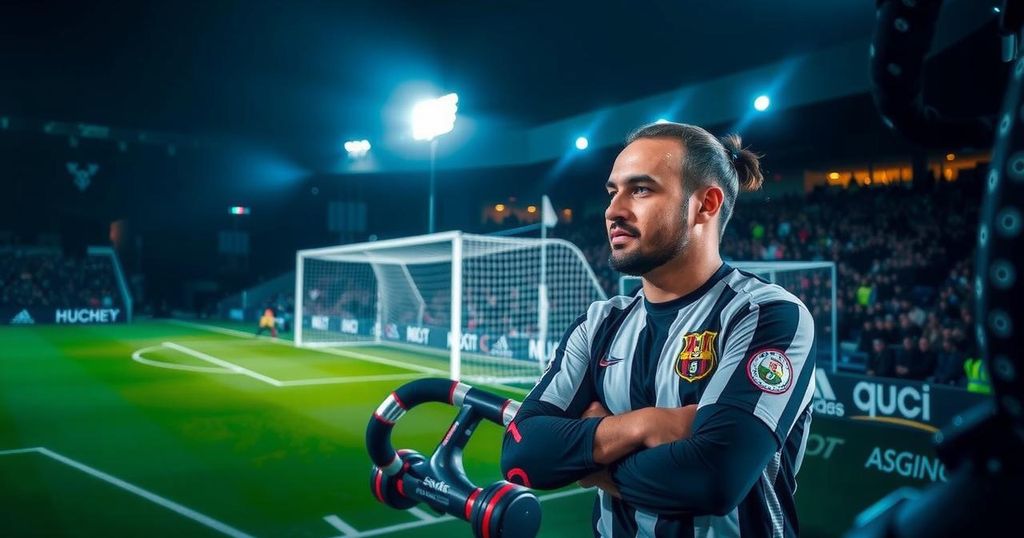Leaked WhatsApp messages from Amanda Staveley imply that Mohammed bin Salman played a significant role in the takeover of Newcastle United by the Saudi Arabian PIF. Despite Premier League assurances of the PIF’s independence from the Saudi state, concerns about the nature of ownership and the UK government’s involvement persist. Staveley adamantly defends the integrity of the process, asserting the Saudi fund’s autonomy and denying any wrongdoing.
Recent revelations from leaked WhatsApp messages, attributed to Amanda Staveley, the former minority co-owner of Newcastle United, indicate that Mohammed bin Salman, the Crown Prince of Saudi Arabia, played a significant role in the acquisition of the football club. Staveley, who divested her shares in July 2023, was instrumental in facilitating the £305 million transaction with the Saudi Arabian Public Investment Fund (PIF), which concluded in October 2021 after the Premier League received legally binding guarantees concerning the separation of the Saudi government from the PIF. The messages hinted at Bin Salman’s direct engagement in negotiations, raising concerns about the UK government’s involvement throughout the process. For instance, one message noted by Staveley cautioned Mike Ashley’s representatives that “the Crown Prince is losing patience,” while another referenced efforts to dissuade him from withdrawing his interest in the deal. Furthermore, Staveley indicated that “the UK Saudi ambassador spoke to the Crown Prince this morning.” Despite the Premier League’s assurances regarding the independence of PIF, apprehensions surrounding Saudi ownership persisted due to the kingdom’s human rights violations. Notably, a CIA report implicated Bin Salman in the murder of journalist Jamal Khashoggi in Istanbul, a charge the Crown Prince refutes. In response to these allegations, Staveley asserted through her legal representatives that references to Bin Salman were made solely in his official capacity as chairman of PIF, denying that her communications undermine the assurances regarding PIF’s detachment from the Saudi state. The Premier League had definitively stated in October 2021 that it had received the necessary confirmations that Saudi Arabia would not exert control over Newcastle United. Staveley characterized PIF as an “autonomous commercially driven investment fund.” Currently, PIF controls 85% of Newcastle United’s shares, with the Reuben Brothers holding the remaining 15%. Staveley’s longstanding ambition to secure a stake in the club reached a turning point during a meeting on Bin Salman’s yacht, Serene, in 2019, which subsequently facilitated her relationship with PIF. Moreover, the Guardian previously documented extensive behind-the-scenes efforts by the UK government to support the Saudi takeover, including messages from Staveley indicating government preference for the deal’s progression, despite its tumultuous implications. Lord Grimstone, the former UK investment minister, confirmed his role was merely to facilitate dialogue between the PIF and the Premier League without compromising the latter’s autonomy in the decision-making process.
The backdrop to this development involves the controversial takeover of Newcastle United by the Saudi Arabian PIF, led by Mohammad bin Salman, who faces ongoing scrutiny over the kingdom’s human rights practices and his alleged role in orchestrating the murder of journalist Jamal Khashoggi. The acquisition process has drawn criticism due to concerns that it could undermine the principles of fair competition and ethical ownership in English football. Despite these concerns, the Premier League accepted the PIF’s assurances of independence from the Saudi government, which has since been questioned following the emergence of leaked communications from pertinent stakeholders, including Amanda Staveley, who has played a crucial role throughout the takeover process. These communications illuminate the intricate dynamics between the Saudi leadership, the UK government, and the Premier League during a high-stakes deal that could reshape the landscape of English football.
In conclusion, the recent WhatsApp leaks suggest that Mohammed bin Salman had a notable influence over the acquisition of Newcastle United, raising significant questions concerning the legitimacy of the assurances provided by the PIF regarding its independence from the Saudi state. As the Premier League maintains its position on the matter, the implications of these revelations could have far-reaching effects on perceptions of governance and ownership within English football, particularly in light of ongoing debates about the ethical ramifications of foreign investments in the sport. The relationship between Staveley, Bin Salman, and the UK government remains a focal point of scrutiny as further disclosures may emerge.
Original Source: www.theguardian.com






